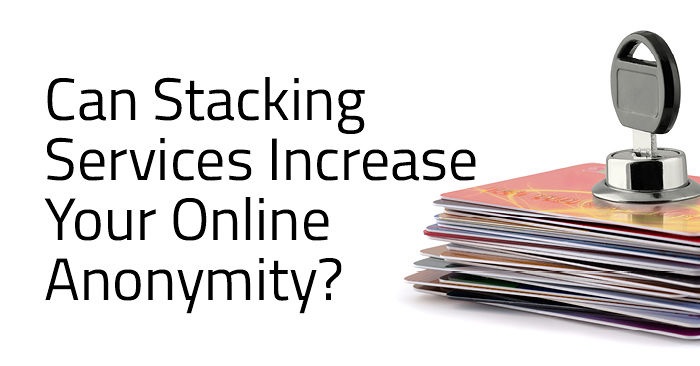How to get a Finnish IP address
The easiest way to improve your digital privacy is to switch your IP address using a VPN. We’ll …

Leaked documents from the National Security Agency (NSA) have revealed what strategies make it really tough for the government to track our online movements. Can stacking services increase your online anonymity? Take these steps to find out.
A variety of entities, both commercial and criminal, love to track your online movements to identify your browsing habits or steal personal information.
Keeping third parties from seeing your web history takes more than disabling cookies in your browser security settings. You need a browser that blocks prying eyes altogether, which is where the Tor Project comes into play. Tor is a free web browser originally developed to protect government military communications from spying.
The service works by withholding some information about your devices that access the Internet as well as bouncing your web communications around their distributed network. This digital encryption keeps outside sources from pinning down your Internet service provider (ISP).
Don’t Be Evil: Activists, journalists, and law enforcement officials all use Tor for secure web browsing, so don’t download it if you’re just looking to get pirated music and movies. It’s not that kind of service.
Exercise extreme caution when using private Bittorrent sites to shield your identity so you can get access to pirated material online. Some of these “services” might sell your information to the highest bidder, which puts a significant dent in your privacy efforts.
In 2012, Italian police arrested the operator of one of the country’s largest file sharing sites on a slew of serious criminal charges, including forgery, tax evasion, and fraud. The 49-year-old operator, who went by the online alias “Tex Willer,” allegedly sold the email address of his file sharing site’s more than 300,000 users.
Pirates Do Hard Time: A platform that trades in illegally obtained material isn’t exactly a bastion for law-abiding citizens. Downloading copyrighted materials online without paying for it isn’t stealing, it is piracy. If you’re keeping score at home, that slight variance in the verbiage means the crime you commit is a federal offense.
Leveraging proxy servers to mask your physical location while online is an essential layer in maintaining your anonymity. You need to use a virtual private network (VPN), such as Hotspot Shield VPN, to encrypt data from your sending point to protect information in transit until it gets decrypted on the receiving end. Basically, the VPN makes it hard for third parties to intercept your information and use it for their own purposes. What information is at stake?
Make sure to use a VPN that features layer two tunneling protocol, so you’re not limited to just point-to-point connections. While using a VPN won’t give your communications 100 percent end-to-end encryption, the service does make it harder for would-be thieves to crack. Nefarious types could still attempt to get your personal information by targeting the device receiving the data you send. Unfortunately, no amount of security on your end can make up for firewall and network deficiencies in end-user devices.
If you’re a business owner or professional with files containing sensitive client information, you need a secure network to send that data over to other decision makers. Keep your own identity and your sensitive business info hidden by using an encrypted chat service like Cspace. This platform allows you to chat securely, transfer files to other users, and use remote desktop functionality. Programs built on the Cspace platform can use the service to create secure connections for P2P (peer-to-peer) file transfers and message sending.
The only time Cpsace needs a third-party router for a connection is when the receiving user is behind their own firewall, in which case the program uses a proxied connection.
A last layer in your anonymity parfait is to protect your voice calls, chats, and text messages. Zorg is a free service that implements ZRTP (Z and real-time transport protocol) for all major smartphones and other mobile devices, including Android, iPhone, MacOS X, and Windows. ZRTP works by using opportunistic encryption and key agreements to create secure sessions. If you call or send messages to someone who doesn’t have ZRTP encryption, you may not have the highest level of security possible because a third-party could still hijack the receiver’s unsecure connection. Other encryption services featuring ZRTP include Red Phone, Lumicall, and Signal.
While layered encryption services can keep your anonymity, they won’t make you invisible online. Access to your personal or business information is still possible across a variety of sources, including social media profiles and your smartphone apps. Once a search engine indexes a page with your name on it, someone in the world can probably find it.
Staying invisible online is difficult in a connected world, unless you’re not interested in engaging in any public forum or interacting out in the open. In either case, you need to practice safe storing of payment info and change your passwords regularly to keep your data secure and identity obscure.
Laying security services might keep your business and personal information safe, but proper implementation is necessary for you and your company to enjoy the benefits. Make sure everyone is on the same page before you engage. Any weak links in your data chain can result in massive data loss. Just ask the good folks at Target or Sony!
